Mary Of Egypt Quotes & Sayings
Enjoy reading and share 7 famous quotes about Mary Of Egypt with everyone.
Top Mary Of Egypt Quotes
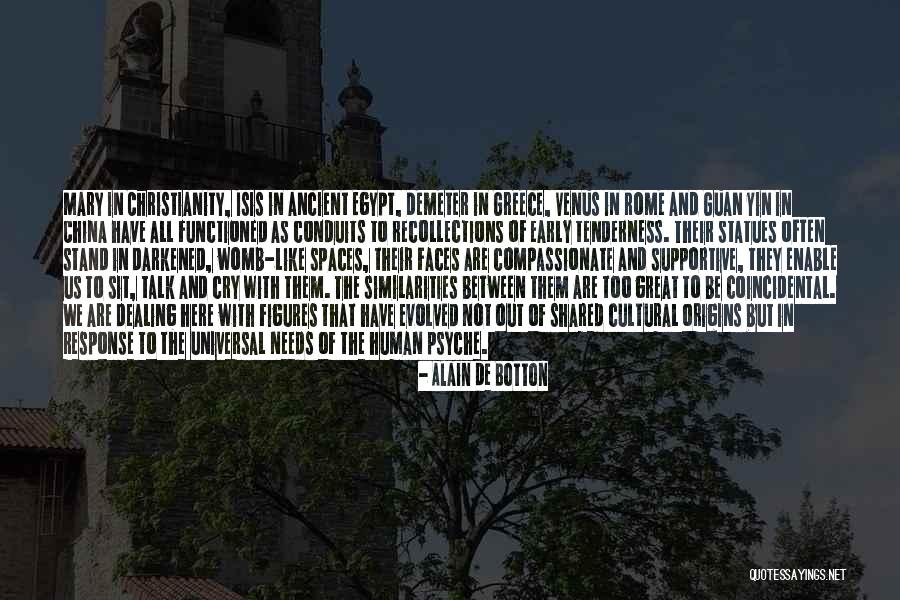
Mary in Christianity, Isis in ancient Egypt, Demeter in Greece, Venus in Rome and Guan Yin in China have all functioned as conduits to recollections of early tenderness. Their statues often stand in darkened, womb-like spaces, their faces are compassionate and supportive, they enable us to sit, talk and cry with them. The similarities between them are too great to be coincidental. We are dealing here with figures that have evolved not out of shared cultural origins but in response to the universal needs of the human psyche. — Alain De Botton

Living in filth was regarded by great numbers of holy men, who set an example to the Church and to society, as an evidence of sanctity. St. Jerome and the Breviary of the Roman Church dwell with unction on the fact that St. Hilarion lived his whole life long in utter physical uncleanliness; St. Athanasius glorifies St. Anthony because he had never washed his feet; St. Abraham's most striking evidence of holiness was that for fifty years he washed neither his hands nor his feet; St. Sylvia never washed any part of her body save her fingers; St. Euphraxia belonged to a convent in which the nuns religiously abstained from bathing. St. Mary of Egypt was emninent for filthiness; St. Simon Stylites was in this respect unspeakable - the least that can be said is, that he lived in ordure and stench intolerable to his visitors. — Andrew Dickson White
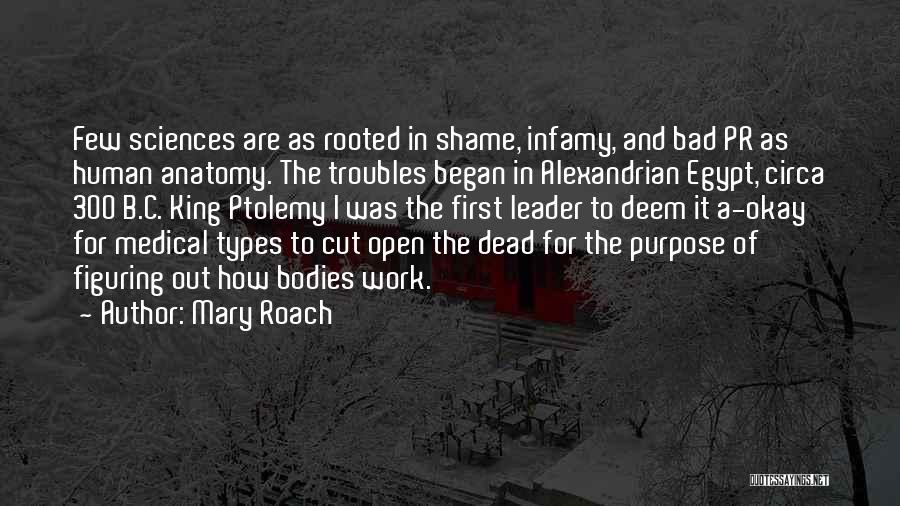
Few sciences are as rooted in shame, infamy, and bad PR as human anatomy. The troubles began in Alexandrian Egypt, circa 300 B.C. King Ptolemy I was the first leader to deem it a-okay for medical types to cut open the dead for the purpose of figuring out how bodies work. — Mary Roach
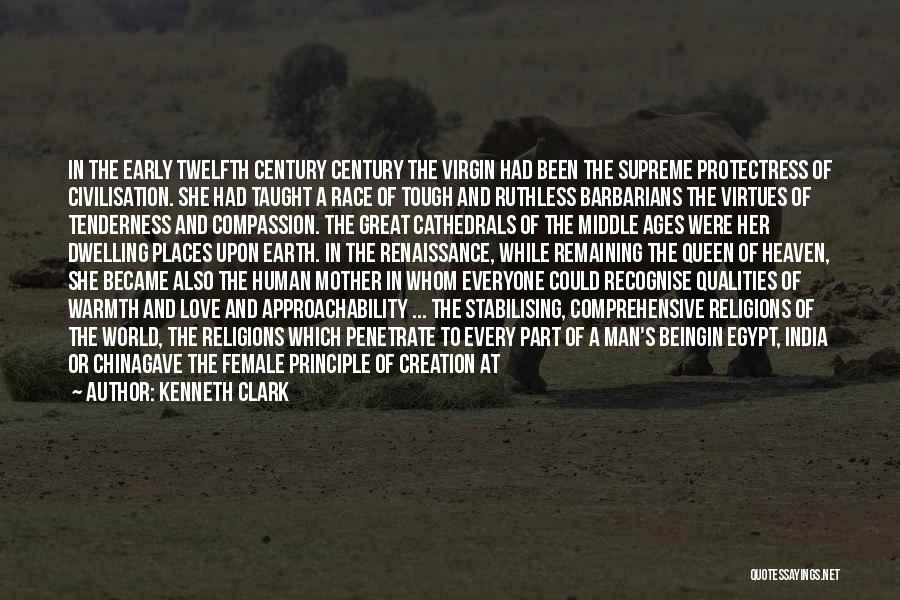
In the early twelfth century century the Virgin had been the supreme protectress of civilisation. She had taught a race of tough and ruthless barbarians the virtues of tenderness and compassion. The great cathedrals of the Middle Ages were her dwelling places upon earth. In the Renaissance, while remaining the Queen of Heaven, she became also the human mother in whom everyone could recognise qualities of warmth and love and approachability ...
The stabilising, comprehensive religions of the world, the religions which penetrate to every part of a man's being
in Egypt, India or China
gave the female principle of creation at least as much importance as the male, and wouldn't have taken seriously a philosophy that failed to include them both ... It's a curious fact that the
all-male religions have produced no religious imagery
in most cases have positively forbidden it. The great religious art of the world is deeply involved with the female principle. — Kenneth Clark
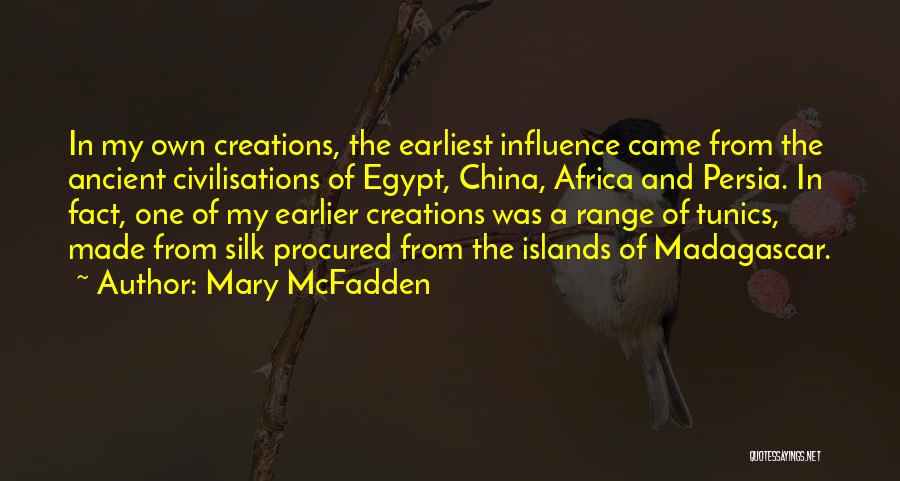
In my own creations, the earliest influence came from the ancient civilisations of Egypt, China, Africa and Persia. In fact, one of my earlier creations was a range of tunics, made from silk procured from the islands of Madagascar. — Mary McFadden
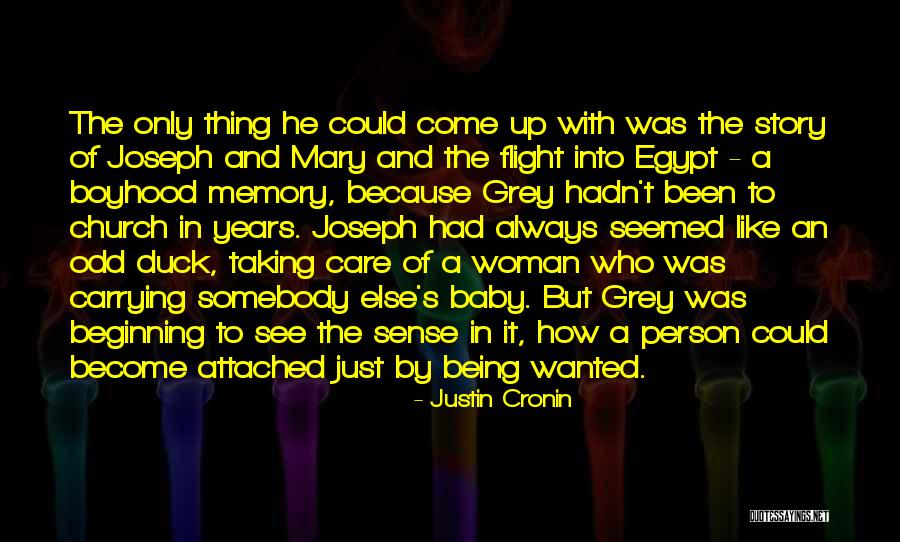
The only thing he could come up with was the story of Joseph and Mary and the flight into Egypt - a boyhood memory, because Grey hadn't been to church in years. Joseph had always seemed like an odd duck, taking care of a woman who was carrying somebody else's baby. But Grey was beginning to see the sense in it, how a person could become attached just by being wanted. — Justin Cronin
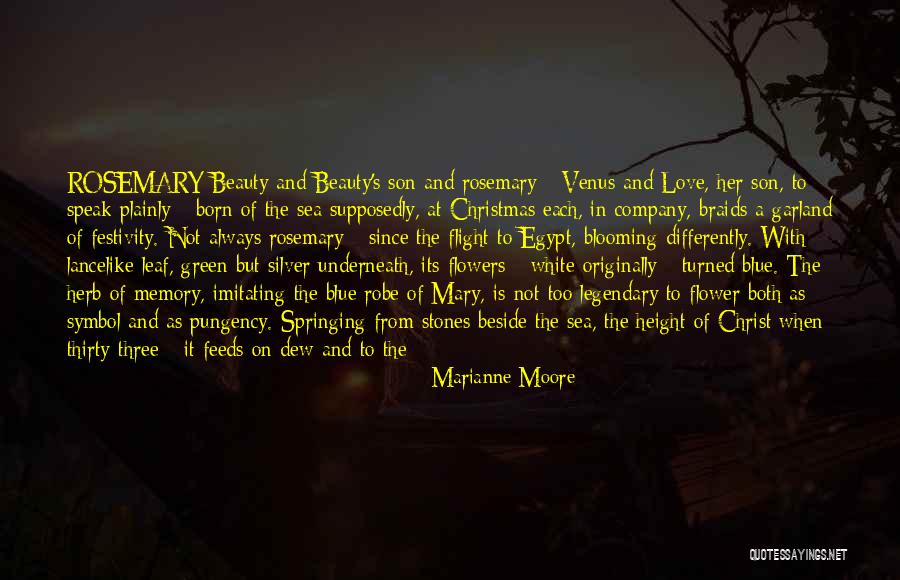
ROSEMARY
Beauty and Beauty's son and rosemary -
Venus and Love, her son, to speak plainly -
born of the sea supposedly, at Christmas each, in company,
braids a garland of festivity.
Not always rosemary - since the flight to Egypt, blooming differently.
With lancelike leaf, green but silver underneath,
its flowers - white originally -
turned blue. The herb of memory,
imitating the blue robe of Mary,
is not too legendary
to flower both as symbol and as pungency.
Springing from stones beside the sea,
the height of Christ when thirty-three -
it feeds on dew and to the bee
"hath a dumb language"; is in reality
a kind of Christmas-tree. — Marianne Moore





